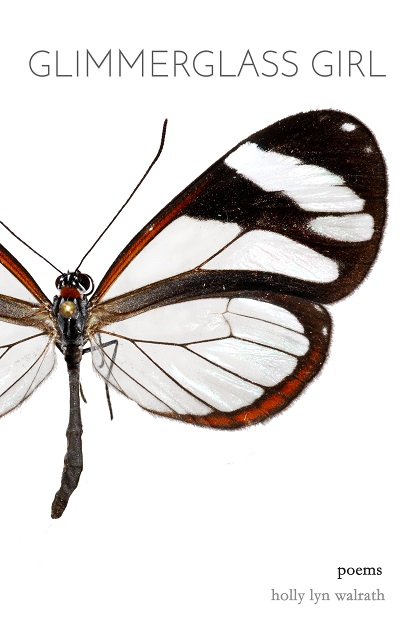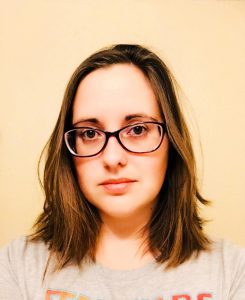FTB From the Ashes of Faith blogger Megan Rahm’s poetry collection, Free to Roam: Poems from a Heathen Mommy, was released last week. I spoke with Megan about her book, which is published by Freethought House.
Freethinking Ahead: The poems in your collection, Free to Roam, examine what it means to be a nonbeliever in a believing society, particularly what it means to be a woman and a parent. Why did you choose poetry as a medium for this exploration? And what do you hope your readers come away with after reading your collection, especially if they tend toward prose rather than poetry?
Megan Rahm: I have only been writing poetry for about two years. It was something I was experimenting with and enjoyed very much at the time I began writing the book. Using poetry for Free to Roam felt like creating a mosaic out of little bits and pieces of stories. I felt it worked very well to give an overview of my life as an atheist mother.
I think my poetry is different from the work of many present-day poets. I feel a lot of poems are difficult to decipher. I want to make art with my poetry, but I want it to make sense, too. This is why I think people who tend toward prose might enjoy my poetry.
I still really enjoy writing poetry and I’m currently writing erotic as well as inspirational poems.
FTA: The image of curls appears again and again in your collection. In the first section, “Curls and Cornfields,” we see curls that “burn,” “hit the earth,” and “screamed / as they were straightened.” Later in the book, curls appear again, this time in hopeful form, for example in “The Curls” in which “they are a part / of something radiant— / a little girl.” We see them again in “Weekend Aftermath,” “Alphabet Soup,” and “Dance for Strangers” in this joyful light.
I was struck by a sense of returning, as curls wind around and seem to return to a starting place but not quite. What sparked your use of the curls images, and did your view of the image change as you wrote the poems in the book?
MR: I chose to use curls because my daughter and I both had curly hair. I say “had” because since writing the book my daughter’s hair has gotten a lot longer and her curls have grown out.
When I was little my family made a big deal out of my curly blonde hair. When I was older I was always trying to straighten my hair to fit in with the other girls at school. Now I consider my curls a part of my identity and I wouldn’t have it any other way. I feel bad for trying to straighten them in the past.
In “Curls and Cornfields” I talked about being raised in a conservative rural area where I often felt trapped. I was different from everyone else and I didn’t think I would ever make it out. That’s why my curls took so much abuse in that section. It symbolizes the judgment I received from others.
Later in the book, I talk about my daughter’s curls as something joyful and innocent. I would describe my daughter as a free spirit, a state she’s in free of judgment. She doesn’t mind being silly, funny, and trying new things. I felt the opposite growing up. My daughter is growing up in a place that is way more diverse than where I grew up. I’m hoping that in a way that might make her feel comfortable in her own skin.
FTA: The poems follow a chronological path from childhood to adulthood into parenthood. Did you write them in roughly the order you have them in the book, or did you move around in time as you wrote each poem? What surprised you most in writing and ordering the book?
The poems were written mostly out of order. My poems often start out as words and phrases from whatever is on my mind. Then they tend to have a life of their own. I think it would have been impossible to write anything in order.
MR: What really surprised me about the book was how well the sections worked. I can’t believe I could come up with something structured out of an unorganized pile of poems. I had an end goal but I was surprised when everything worked out so well.
FTA: Which poets do you enjoy reading? Are there any poets who were particularly influential to you as a freethinking poet and a “Heathen Mommy”?
MR: It seems challenging to find freethinking poets, but I really enjoy the work of Mark Doty and Sharon Olds.

 and
and 

 HLW: For me, fairy tales began with Disney. I grew up in the generation that knew the golden age of Disney as not just something to be consumed but as a kind of religion. We lived, breathed, and ate (in the form of kid’s cereal and snacks) Disney. However, as much as I love them, those stories are being reexamined today for their implications. Women were taught to be princesses, not queens—damsels in distress, not heroes. But when we grow up, we realize those stories set false expectations. I’m in love with the new Disney stories like Moana, Rogue One, A Wrinkle in Time, Brave, and The Incredibles because they give girls new options. We’re redefining what a fairy tale means and where women stand in the narrative.
HLW: For me, fairy tales began with Disney. I grew up in the generation that knew the golden age of Disney as not just something to be consumed but as a kind of religion. We lived, breathed, and ate (in the form of kid’s cereal and snacks) Disney. However, as much as I love them, those stories are being reexamined today for their implications. Women were taught to be princesses, not queens—damsels in distress, not heroes. But when we grow up, we realize those stories set false expectations. I’m in love with the new Disney stories like Moana, Rogue One, A Wrinkle in Time, Brave, and The Incredibles because they give girls new options. We’re redefining what a fairy tale means and where women stand in the narrative.